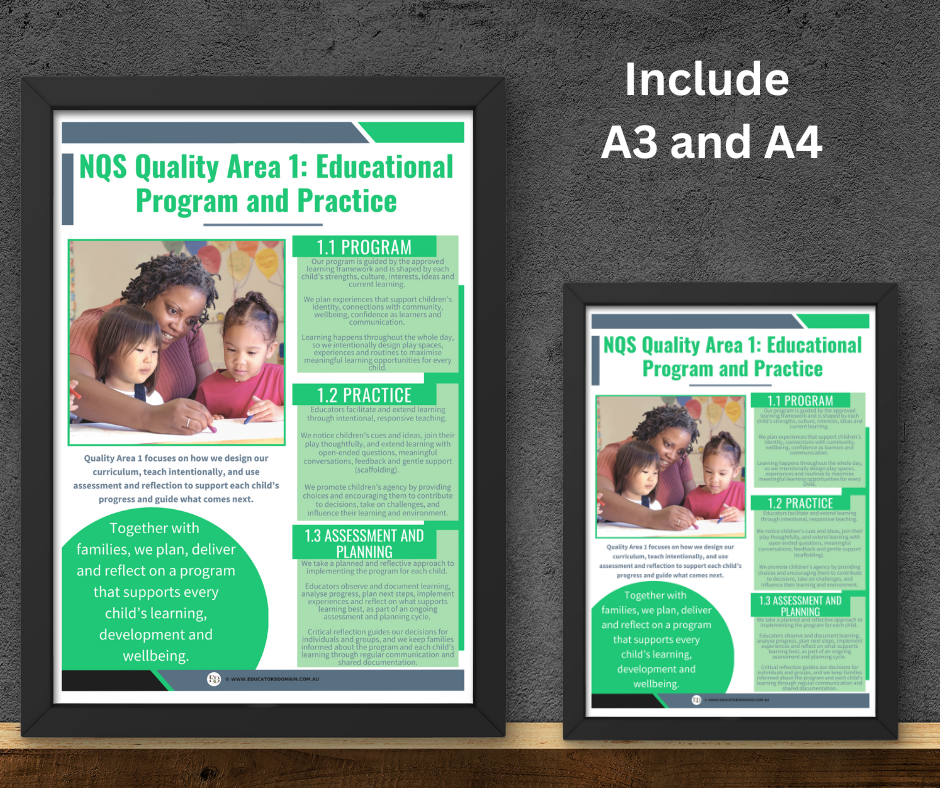Including Little Voices: Involving Children in Shaping Quality Improvement
- The Educators' Domain

- Aug 8, 2023
- 3 min read
Updated: Aug 29, 2023
Children are not just learners but active participants in their own learning adventures . Embracing this important idea, the practice of including children's voices in both the Early Childhood Program and Quality Improvement Plan (QIP) becomes a powerful way to empower and enrich their experiences.

By giving children a chance to share their thoughts, ideas, and likes, we set out on a meaningful journey that not only matches the goals of great education but also builds a culture of belonging, choice, and working together. .A key part of our journey toward excellence is the Quality Improvement Plan (QIP). It's like a roadmap that helps teachers, families, and children work together for a better future.
Empowering Through Participation: The concept of children's voices in the QIP reflects the belief that children are active participants and valuable contributors to their own education. The NQS encourages the active involvement of children in decision-making processes, fostering a sense of ownership and agency. By allowing children to express their thoughts, ideas, and preferences, we create an environment that values their perspectives and fosters a culture of inclusivity and collaboration.
The National Quality Framework and Children's Participation: At the heart of the NQF lies the philosophy that children are capable and competent individuals. It champions the idea that children should have the opportunity to shape their own learning experiences and actively engage in matters that affect them. This philosophy aligns perfectly with the notion of involving children's voices in the QIP. By inviting children to contribute their thoughts, we validate their capabilities and lay the foundation for lifelong skills of critical thinking and self-expression.

Practical Implementation: Engaging children in shaping the QIP involves thoughtful and intentional strategies. Regular discussions, brainstorming sessions, surveys, and creative activities can serve as pathways for older children to share their perspectives. Open-ended questions like "What makes you happy at our center?" or "What would you like to learn more about?" can spark meaningful conversations. Through visual aids, drawings, and projects, children can articulate their thoughts even more effectively. For younger children you can watch and observe their responses, reactions towards changes you are making or areas you are observing.
Benefits of Children's Participation:
Ownership and Belonging: When children see their ideas and opinions being valued, they develop a sense of belonging and ownership towards their learning environment.
Confidence and Empowerment: Expressing their thoughts fosters confidence and empowers children to take an active role in their education.
Enhanced Learning: By involving children, the QIP becomes a powerful tool for enhancing learning experiences tailored to their interests and needs.
Stronger Partnerships: Engaging children's voices strengthens relationships between educators, families, and children, creating a collaborative community.
Incorporating children's voices in the Quality Improvement Plan is not only a commitment to the principles of the National Quality Standards and Framework but also a testament to our dedication to providing the highest quality care and education.
By nurturing a culture where children's perspectives are treasured, we set the stage for a brighter future, where each child's journey is shaped by their own dreams and aspirations. Every child becomes an active participant in creating a world of endless possibilities. Keep it simple and use our Childrens' Voices set to begin questioning children using your Quality Areas. Have a look at this set here:











































Comments